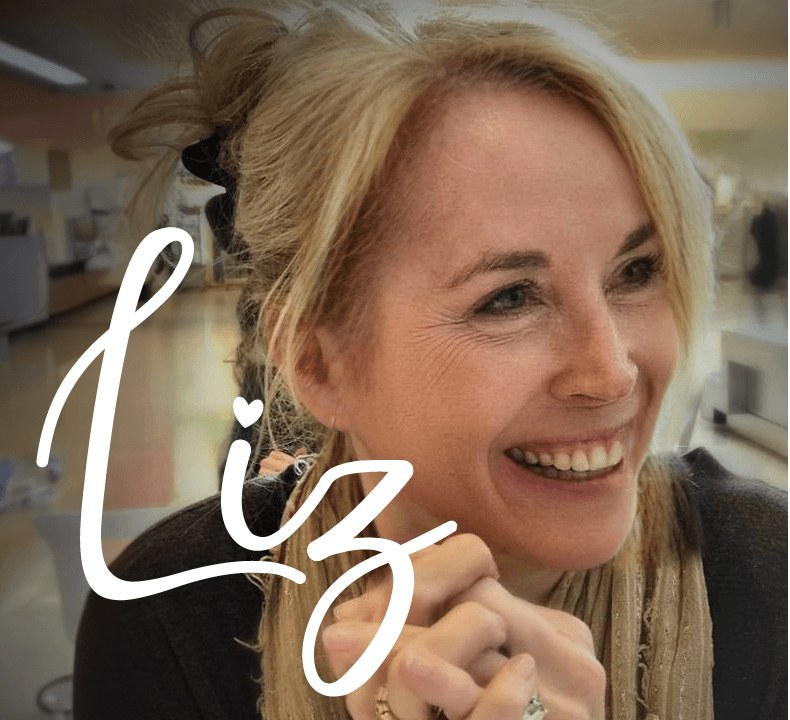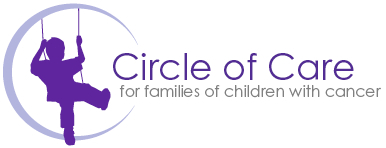
Reflecting on this past National Caregivers Month, I noticed a lot of talk in the media about the value and importance of caregivers in our lives. But who are they? Are they aides? Nurses? Doctors? Or are they you?
I am a wife and a mother. I was a daughter and granddaughter. I am a caregiver.
When I was a teenager, my parents divorced, and as the only child, I began worrying about and comforting my mother – she felt alone, hurt, and betrayed. By the time I was 17, she developed breast cancer. Over the course of the next 18 years, I was my mom’s “person.” I commuted between New York and Florida to attend her doctor appointments, visit her in the hospital, and take care of my grandmother with whom she lived. My mother died when my girls Amanda and Julianna were just two years and 16 weeks old. My focus for the next five years turned to caring for my 95-year-old grandmother, who lived independently in her own home. But none of this prepared me for being a capital “C” caregiver when my baby, my two-and-a-half-year-old son, was diagnosed with cancer.
It’s funny - some of the most important “jobs” we have in life have no training. There’s no advanced degree to be earned for being a daughter, a mother, a wife, and a caregiver. It’s all learned on the job. When the doctor told us Carlos had cancer, it was like having the wind knocked out of me and not being able to catch my breath, like being hit by a Mack truck or falling through the ice. Nothing prepares you for the shock or the threat of losing your child. You go into overdrive immediately – and in our case, for three long years… then treatment is done, and you try to catch your breath and move on with the shadow of cancer always lurking.
Carlos was diagnosed just weeks before Christmas, on December 10th, 2001. Our girls were seven and eight years old. Santa was expected! And my husband, Jeff, was also devastated and struggled to find where he could be the most helpful. Our friends did most of our Christmas shopping. Jeff bought every Thomas the Tank Engine he could get his hands on for Carlos, and I hunkered down at the hospital. The first hurdle was starting chemo and making it home for Christmas. Good news – we did! Bad news - we were back in the hospital for an unexplained fever on December 29th. I quickly realized my life was not my own, and we would all be living at the whim of Carlos’s treatment and his reactions to it.
Once the shock wears off, the logistics hit you next. The first year, we drove 45 minutes (each way) to our oncologist three times a week. In year two, twice a week, and in year three, once a week. Jeff commuted to the city every day, and our two little girls needed someone to meet the bus, prepare a snack, drive to after-school activities, help with homework, and make dinner. My head was spinning… A friend still tells the story of trying for a few weeks to set up a playdate for our children and me blurting out, “I can’t even think about this right now. My son has cancer!” I think I might have overreacted... just one of the side effects of being a cancer mom.
Next on the list of on-the-job learning was giving Carlos IV medications at home. First, access the port with a needle. Flush it with saline. Hook up to an 8-hour medication drip. Flush it with saline. Add heparin to keep the line clean. It became a routine… Needles and solutions stored in my fridge next to the yogurt. It was surreal. Did I have a degree in nursing? No, but I did it. What choice did I have? Every parent of a child with cancer faces the same unanswerable question, “How do you do it?” Because we have no other choice.
I’ve had a lot of time to reflect on this. But last month, I had an experience that brought it all home. AstraZeneca and Scientific American joined forces five years ago to create the C2 Cancer Community Awards. I attended their ceremony this year as one of the award recipients, and what truly struck me was their acknowledgment and commitment to local community support… the local caregivers. Mohit Manrao, Senior VP, Head of U.S. Oncology, AstraZeneca, said, “When we work together as a community, we have stronger impact and greater outcomes… We cannot make the progress we strive for with treatment and outcomes if we are unable to reach cancer patients in every zip code. And we can’t do that without the work being done at the community level to provide support and increase access.”
Being a caregiver is overwhelming. It can feel like you are never getting it right or like you don’t know where to start. And there is no roadmap to follow. The medical team is only one part of your care team. Being a caregiver is an essential part of the overall care team. Recognizing the value of the "lay” team of caregivers has been overlooked for years. It’s time for caregivers to get their due recognition... because nearly everyone among us is a caregiver in one aspect of our lives or another. Being on the pediatric cancer care team is a reality in itself.
Here's what I’ve learned as a cancer mom and a caregiver:
Ask for and accept help. It doesn’t show weakness to ask for help. It takes a care team at the hospital to care for your child and a care team at home. Ask for help with household duties like cleaning, laundry, grocery shopping, meals, yard maintenance, and babysitting siblings. Ask for help when you are in-patient at the hospital - a video chat with your child’s closest friend can be just the lift you both need.
Take time for yourself. Ask for help that gives you time to yourself, time with your spouse, or time with your other children.
Streamline keeping others informed. Set up an outgoing voicemail message and/or have a friend set up a CaringBridge site for you to use to share your updates with everyone in your circle at once.
Over the past 20 years, I have dedicated myself to helping those families following in our footsteps navigate this journey – anything and everything I can do to lessen the confusion, feelings of inadequacy, and loss of self. I was honored to receive this year’s Catalyst for Care award on behalf of the work we do at Circle of Care. For now, I’m still learning how to be a mother, wife, and caregiver, and try to remember to take care of myself too.
Liz Salguero
